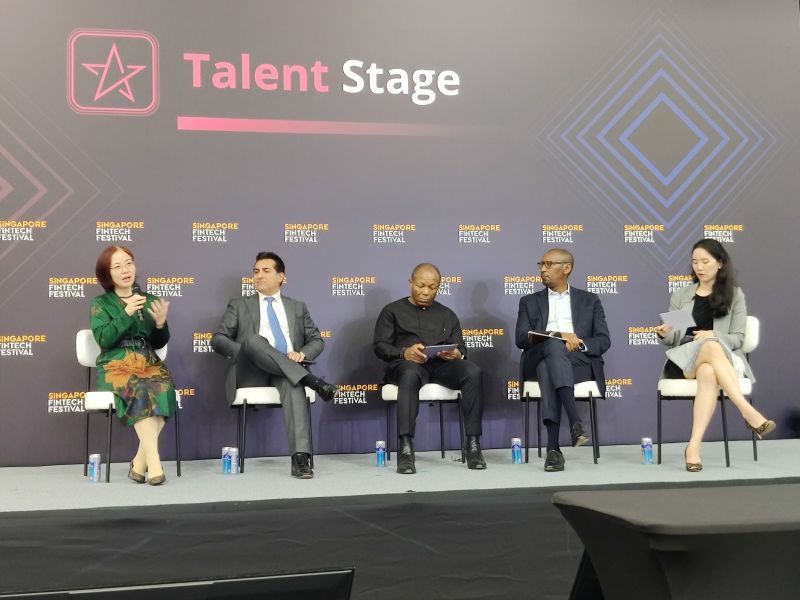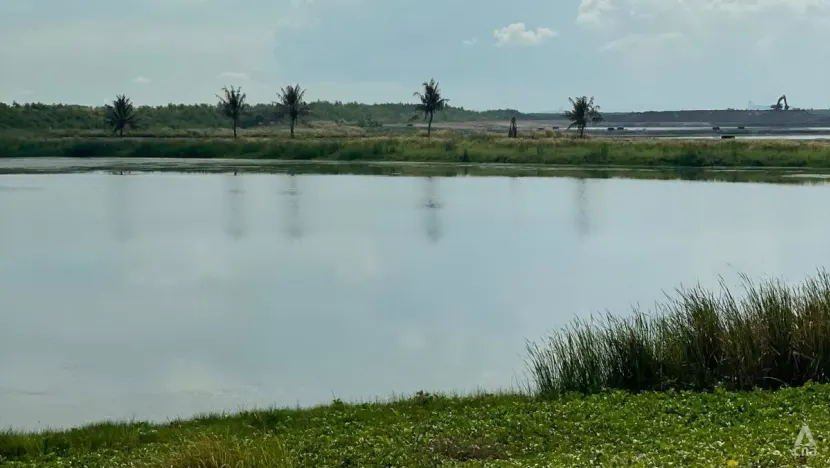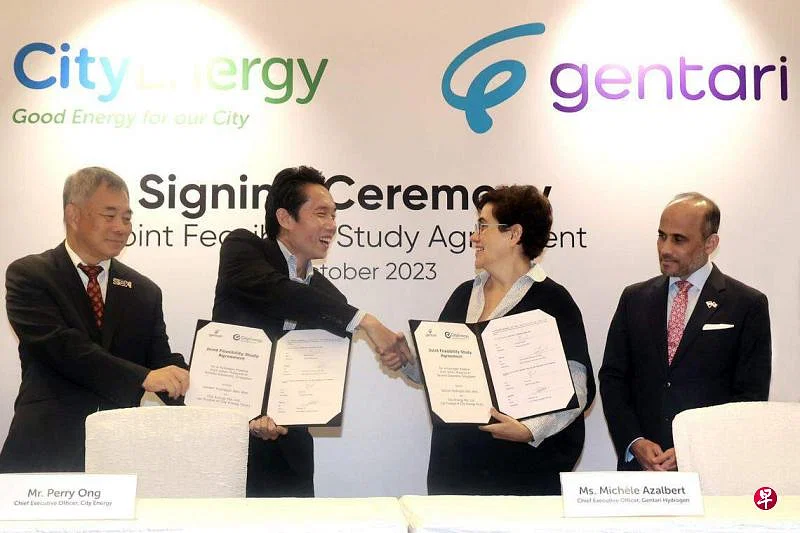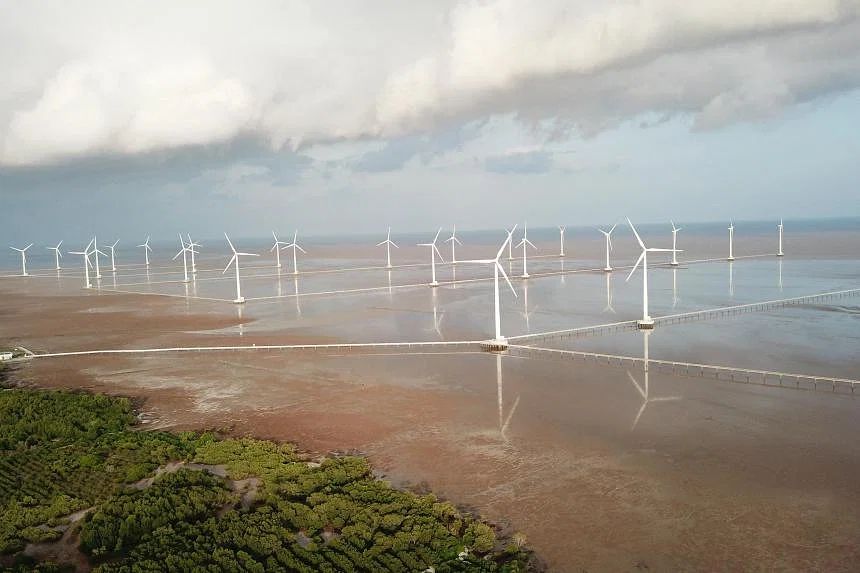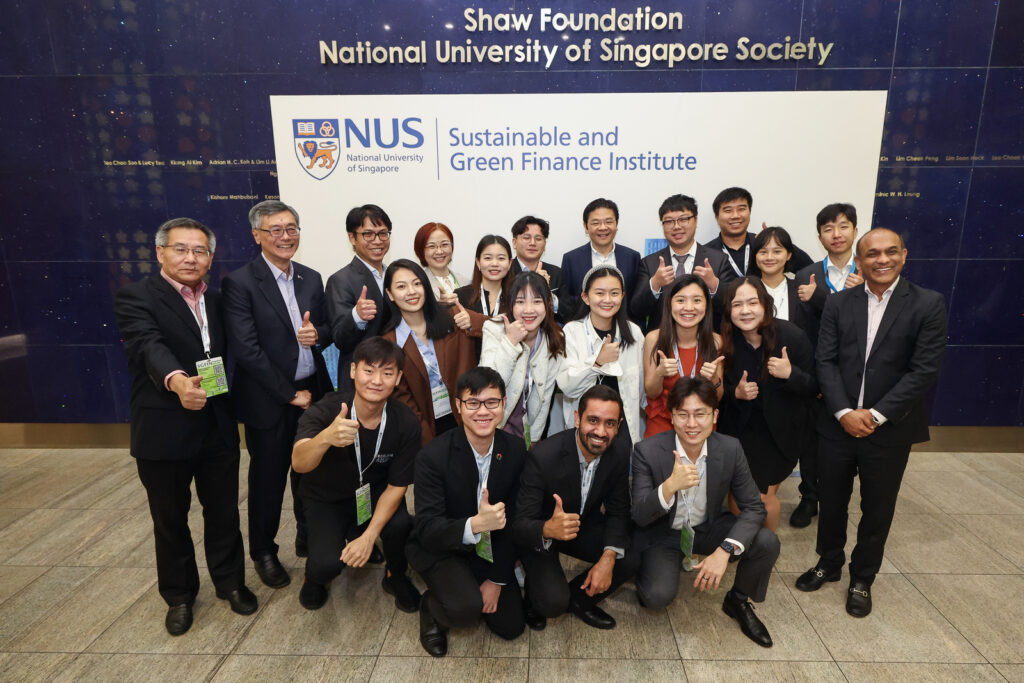Singapore FinTech Festival 2023: SME Financial Literacy and Talent Development
Prof. Zhang Weina, Deputy Director of SGFIN, participated in the panel discussion “SME Financial Literacy and Talent Development” at Singapore FinTech Festival 2023, highlighting the critical role of governments, development agencies, and educators in supporting MSMEs’ global growth. She emphasized the need for MSMEs to adopt holistic business models that focus on long-term sustainability rather than profit alone. Prof Weina stressed the importance of training top leadership and developing multi-disciplinary sustainability talents to drive decarbonization efforts. She also called for fostering social capital with employees, particularly millennials, through mentorship and opportunities centered around sustainability.
Singapore FinTech Festival 2023: Are Global Regulations Running Too Far Ahead of Tech Solution and Economic Realities?
At Singapore FinTech Festival 2023, SGFIN’s Prof Johan Sulaeman moderated the panel titled “Are Global Regulations Running Too Far Ahead of Tech Solution and Economic Realities?” He emphasized the transformative potential of advanced technologies like generative AI and machine learning in optimizing business decisions and promoting sustainability. Prof Johan argued that while regulations and ESG disclosures are important, collaboration among SMEs, corporates, and regulators is key to reshaping the business landscape. He stressed that aligning data with needs through technology is crucial, encouraging a ground-up approach to help SMEs meet reporting requirements.
Passengers can offset carbon emissions from air travel under new Changi Airport initiative
The Changi Carbon Offsets programme is now in full swing, allowing passengers to take charge of their carbon footprint, irrespective of the airline they choose. On an interview with The Straits Times, Associate Professor Johan Sulaeman, Director of SGFIN, highlights the timely nature of Changi Airport’s initiative and underscores the importance of innovative technologies for a faster reduction in greenhouse gas emissions in the aviation sector.
Environmental experts sound the alarm on how fast Singapore’s only landfill Semakau is filling up
Semakau, our island landfill, is over half full, and urgent action is needed. With Semakau reaching capacity by 2035, SGFIN’s Prof Johan Sulaeman advocates two key strategies: repurposing ash and a concerted effort to reduce waste, whilst also acknowledging challenges and the need for careful processing. With this being said, Prof Johan still emphasizes the timeless “reduce, reuse, recycle” mantra. He highlights the importance of reducing single-use plastics, especially in food establishments, and making recycling more accessible for households. Singapore’s recycling efforts are on the rise, but challenges like contamination persist.
2023 GRESB Regional Insights: Singapore
At the 2023 GRESB Regional Insights: Singapore event, SGFIN’s Prof Johan Sulaeman moderated a panel on the future of sustainable finance in real estate. The discussion highlighted that sustainable finance products, like green bonds, offer lower interest rates, benefiting developers. However, challenges remain for SMEs in meeting sustainability targets, and future solutions must prioritize reducing carbon emissions in building materials and hard-to-abate sectors. The discussion concluded with a call for a unified ecosystem to support all stakeholders.
Asian Downstream Summit & Asian Refining Technology Conference 2023: Minimizing Risk and Unlocking Opportunity in the Realm of Financing the Energy Transition
At the Asian Downstream Summit & Asian Refining Technology Conference 2023, Prof Zhang Weina, Deputy Director of SGFIN, participated in a roundtable discussion on sustainable and transition finance. She emphasized the importance of adopting sustainable finance principles and frameworks like the Marginal Abatement Cost Curve and circular economy principles to identify innovative solutions for carbon reduction. She also highlighted that sustainable financial products are available for companies committed to achieving net zero goals, incorporating economic, environmental, and social considerations. The discussion also covered insights into the global and Asian transition finance landscape.
City Energy plans to establish a pipeline with Gentari to import hydrogen from Johor in 2027
Dr David Broadstock, SGFIN Senior Research Fellow and Energy Transition lead, was interviewed by Zaobao with regards to the announcement by City Energy and Gentari to undertake a feasibility study into the potential supply of hydrogen via pipeline between Malaysia and Singapore.
Singapore to import low-carbon electricity from Vietnam to achieve clean power import milestone
Dr David Broadstock, SGFIN Senior Research Fellow and Energy Transition lead, was quoted in articles appearing in the Straits Times and Eco-Business discussing the conditional support for Singapore to develop and import 1.2GW of low-carbon electricity from Vietnam, which will see Singapore exceed its existing national targets for low-carbon energy.
Government Initiatives in Shaping Singapore’s Energy Landscape and Security
Dr David Broadstock, SGFIN Senior Research Fellow and Energy Transition lead, gives his thoughts on some of the announcements made at Singapore’s International Energy Week (SIEW). He was interviewed by CNA on the plan to pilot real-time residential energy demand response programme driven by smart technologies. Dr Broadstock was also quoted by The Straits Times in this piece discussing the significant changes announced to Singapore’s natural gas procurement process.
China’s Belt And Road: Future Opportunities For Singapore?
Assoc Professor Zhang Weina, Deputy Director of SGFIN, was interviewed by Channel News Asia to discuss the opportunities for Singapore businesses as the 10-year old China’s Belt and Road Initiative continues to evolve in 2023.
Nurturing a new generation of green finance talents
In this commentary, SGFIN Managing Director Prof Sumit Agarwal and Deputy Director Assoc Prof Zhang Weina shared their insights on why multidisciplinary and experiential learning is especially important in sustainable finance education, and the role of industry-academia collaborations in nurturing tomorrow’s talent pool. The reflection marked the inaugural graduating cohort of the Master of Science in Sustainable and Green Finance in July 2023.
Cleaner fuels, customised toilets and more: Sustainable Innovations for F1 Singapore Grand Prix to halve energy emissions by 2028
In interviews with both CNA and the Straits Times, Dr David Broadstock, SGFIN Senior Research Fellow and Energy Transition lead, discussed the sustainability efforts for the upcoming Formula 1 Grand Prix, and the longer-term aspirations for the event to become carbon neutral-and possibly target net-zero or beyond-within the next few years.

